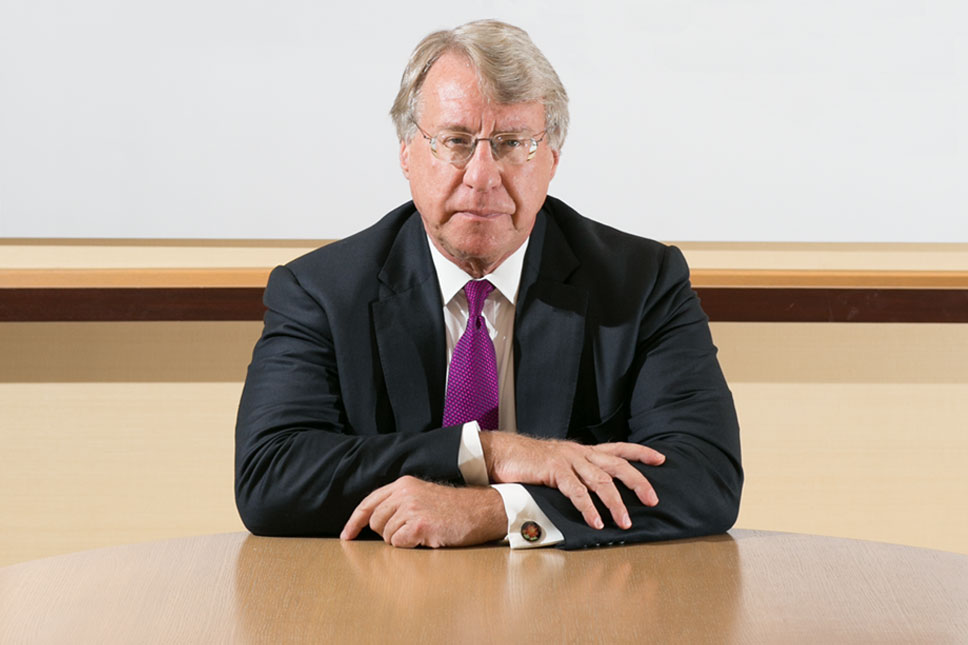
In 2001, American investment manager Jim Chanos detected several red flags in the corporate accounting practices of Enron, then one of the largest energy and commodities companies in the United States. Chanos used his keen eye for corporate catastrophe to place a large bet against Enron, short selling the company’s stock as it was on the precipice of collapse. When the house of cards crumbled, Chanos and his clients were $500 million richer, and Enron was bankrupt.
It wasn’t his first big score short selling a company on the brink of failure, and certainly not his last. As the founder of Kynikos Associates, the world’s largest exclusive short-selling investment firm, he has made a fortune—over $1.5 billion—identifying overvalued businesses. In fact, he may be less investment banker and more corporate snoop, serving as a self-appointed sheriff of the free market. Now, he teaches the art of financial investigation at his alma mater, Yale University, where he can build the next generation of short-sellers and watchdogs.
Chanos graduated with the Yale class of ‘80, earning a B.A. in economics and political science, before briefly working as an analyst in Chicago. After exposing an out-of-tune piano company, he gained a reputation for ruthlessly pursuing stocks to short, landing him in trouble with his employer, Deutsche Bank. He founded Kynikos in 1985, and through the highs and lows of the market, the firm has amassed billions in assets through the risky business of short selling.
These days, while publicly decrying Tesla’s exceedingly high value, the investor stands behind a lectern in New Haven part time. The class, “Financial Fraud Through History: A Forensic Approach,” is not a course on managing hedge funds, nor is it a lecture on “how to commit corporate deception.” Chanos’s goal through the course is to prepare young Yalies for a world where they will inevitably encounter fraud, and to provide them with the tools to protect themselves and their employers. If these detective skills just happen to earn them a windfall, as with Chanos and Enron, all the better.
Wall Street has always been in a “love-hate” relationship with Chanos; he is sometimes championed as a truth-seeker, while also chastised for being the bearer of bad news. Few investors make friends while playing the role of the tattle-tale student who alerts the teacher when someone else is cheating on the test. But the example he sets for today’s students could save the next generation from another Enron-scale financial fiasco, or even another Great Recession. In the meantime, Chanos is fit to continue his fight against corporate fraud, no matter which celebrity CEOs he might displease.
